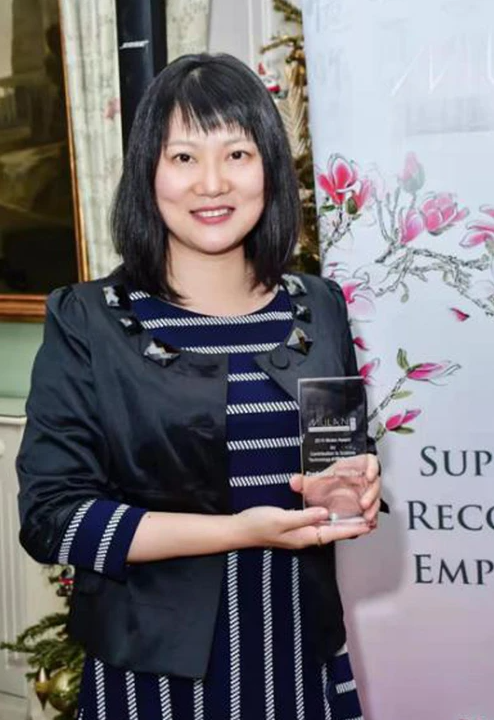Author: WANG Hui |
The safe return to earth of the Shenzhou-13 crew not only marks a perfect ending to a successful mission, but also reignited the public's interest in the exploration of space. This month’s Light People features a true “Space Explorer”. In the past two decades, she has devoted to space robotics research and is recognized for advancing AI capabilities for future space missions. In addition, she has been actively promoting STEM through public outreach and setting role models to encourage women in STEM education and careers. She is Professor Yang Gao, winner of the Mulan Award 2019 in science and technology, a dedicated award to celebrate the achievements and success of Chinese women in the United Kingdom and wider. Prof. Gao is the Professor of Space Autonomous Systems at the University of Surrey's Space Centre, and founding head of the STAR LAB which specializes in robotic sensing, perception, visual GNC, and biomimetic mechanisms for industrial applications in extreme environments. She is also Editor-in-Chief of the Journal of Field Robotics, where she demonstrates leadership in serving the wider scientific community, strengthening academia-industry connections, and cultivating new generations of sci-tech talents. So what is Prof. Gao's story with Light? What unique insights does she have on the subject of scientific research? Please sit back, fasten up your seatbelt, and follow Prof. Gao and Science Editor on a journey to outer space.

Biography: Professor Yang Gao, from the University of Surrey, UK, is a world-renowned expert in space robotics and the editor-in-chief of the Journal of Field Robotics, a top robotics journal. She has more than 20 years of experience in artificial intelligence research and development in extreme environments such as space. She is a Fellow of the Institute of Engineering and Technology (IET) and a Fellow of the Royal Aeronautical Society (RAeS). In 2008, she was named by Times Higher Education as one of the UK’s top ten outstanding young scholars who have made significant contributions to her discipline, and was awarded the Mulan Award in 2019 for her contributions to science, technology, and engineering.
She has served as a Principal Investigator (PI) of projects funded by the European Space Agency (ESA), the UK Space Agency, the European Commission, the UK Research Innovation, the Royal Academy of Engineering, as well as industry through international and national collaborations. Professor Gao is actively involved in real-world space mission design and development, to name a few, ESA's ExoMars, Proba3 and VMMO, UK's MoonLITE/MoonRaker, and CNSA's Chang'E 3.
Professor Gao's research team has received many international recognitions or awards, such as the 2013 IAF Edmund Bren Silver Medal, the 2016 COSPAR Outstanding Paper, the 2018 ESA SysNova Challenge Joint Champion, the 2019 IEEE/ASME-AIM Best Paper Finalist, the 2019 European Space Agency-Stanford Challenge Top 3, and the 2020 IEEE-ICRA Space Symposium First Prize of Wiley Poster Award, etc.
Article link: https://www.nature.com/articles/s41377-022-00869-7
